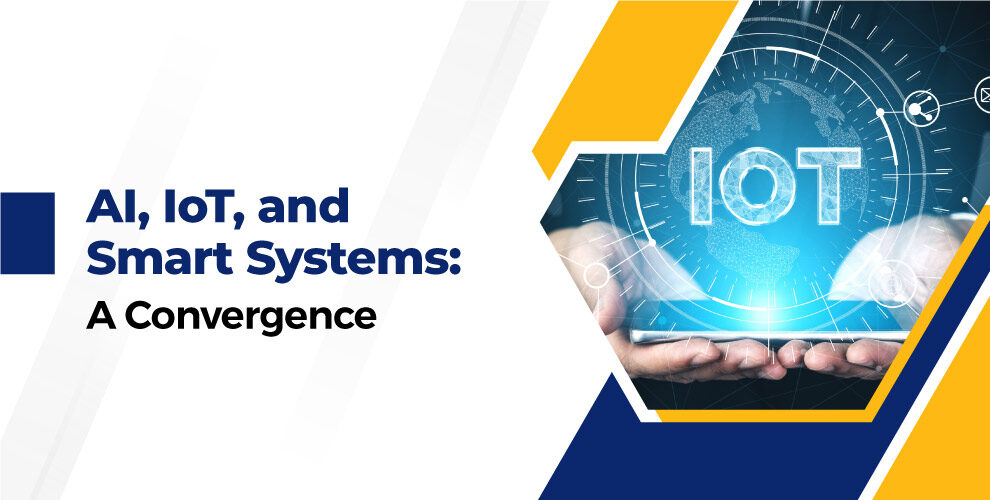In recent times, IoT and AI have been the buzzwords creating and evolving the way of living and working in the various sectors. Artificial intelligence helps to make data more meaningful, analyse and transform it into insights. Whereas the Internet of Things provides industries with smart sensors which collect relevant data. The interconnection between these two technologies is the data. Therefore, it can be concluded that one is incomplete without the other. They both have their role in accelerating the global digital transformation of various industries.
Now emergence of artificial intelligence colleges in Tamil Nadu helps engineers and graduates to focus on developing their technical skills as smart systems are going to rule the digital world. This blog gives insights into how AIOT (artificial intelligence and Internet of things) contributes to the sectors that engineers should be aware of.
Artificial intelligence and IOT: What you need to know?
- The term “Internet of Things” refers to sensors that are connected to machines, sense and record certain predefined parameters related to the machine’s operation, and then transmit that data over the Internet.
- Predictive analytics is just one area that falls under the umbrella of artificial intelligence. In most cases, even before the actual problem occurs, the data is processed and thus used to predict and provide users with actionable insights for making accurate, and data-driven business decisions.
- When associated with sensors and edge gadgets or smart gear, artificial intelligence advancements can gather, process and break down volumes of data.
- In artificial intelligence, the parts of human perspective and knowledge are repeated, subsequently making a framework that is sufficiently smart to decide.
Merging of AI and IOT: Applications
Smart homes and home automation:
AI and IoT integration in smart homes allows people to create smart, energy-efficient living spaces. For instance, Artificial intelligence with virtual assistance like Amazon Alexa or Google Colleague, has some control over IoT gadgets like smart indoor regulators, lighting frameworks, and surveillance cameras.
This merging allows the house owners to robotize tasks, change settings from a distance, and get ongoing bits of knowledge into energy utilization, save costs and enhance comfort.
Predictive Maintenance and Industrial IoT:
The integration of AI and IoT transforms maintenance procedures in industrial settings. Sensors implanted in hardware consistently monitor the performance and health which provides real-time data to AI algorithms.
Anomalies and potential failures are now easy to detect with AI-driven predictive maintenance. This maintenance allows to avoid sudden expenses and increase operational efficiency.
Healthcare and Remote Monitoring:
With the integration of AI and IoT, it is now easy for the healthcare industry to provide personalized care and remote patient monitoring. All you need to have is IoT wearable devices which continue to monitor the vital signs and transmit the data to AI-powered healthcare systems. With the AI algorithms, this data can be examined to identify the indicators in case of health concerns, tailor suggestions for treatment and alert medical experts in case of emergency.
Smart cities:
Constructing smart cities with enhanced services and infrastructure, integration of AI and IoT is essential. IoT sensors across urban regions gather information on traffic streams, air quality, waste management, and energy utilization. This gathered data is analysed with the assistance of AI algorithms which improve urban planning, reduce congestion, manage waste more effectively, and optimize transportation routes.
Transportation:
The growth of autonomous vehicles is evident as you can see from the integration of IoT and AI. IoT sensors give constant information on street conditions, climate, and vehicle execution. Artificial intelligence algorithms process this data to settle on split-subsequent options, empowering independent vehicles to explore securely and productively on streets.
Drone monitoring:
Drones help to assist or monitor large areas in real time and make required adjustments to the flow of traffic. AI helps in analyzing the data and directs you to fewer traffic zones, and adjustments to the speed limits and traffic lights without human inclusion. This further development highlights that AI and IoT integration will create a revolution in eCommerce sectors. However, the developments are in progress which future engineers may unravel.
What are the challenges in integrating AI and IoT?
Any application with AI and IoT increases the amount of sensitive data. To safeguard privacy, extreme data reliance is required in such circumstances. Safeguarding against cyber attacks is a challenge.
With AI, there are various queries or complex tasks which may keep the AI algorithm objective, unbiased and responsible. However, the challenge may increase with the integration of AI and IoT because of the ethical considerations for a few devices.
Any innovative progression must be interoperable. However, given that AI and IoT both have a wide range of applications, it is difficult to achieve such consistency.
To conclude, AI and IoT integration is a convincing story it keeps challenging and utilised in most business levels and industries. The best artificial intelligence and data science colleges in Coimbatore need to recognise the integration of technologies helpful for the companies in manufacturing, restaurants, on-demand healthcare, and other industries also makes them efficient and keep on the competitive edge.


